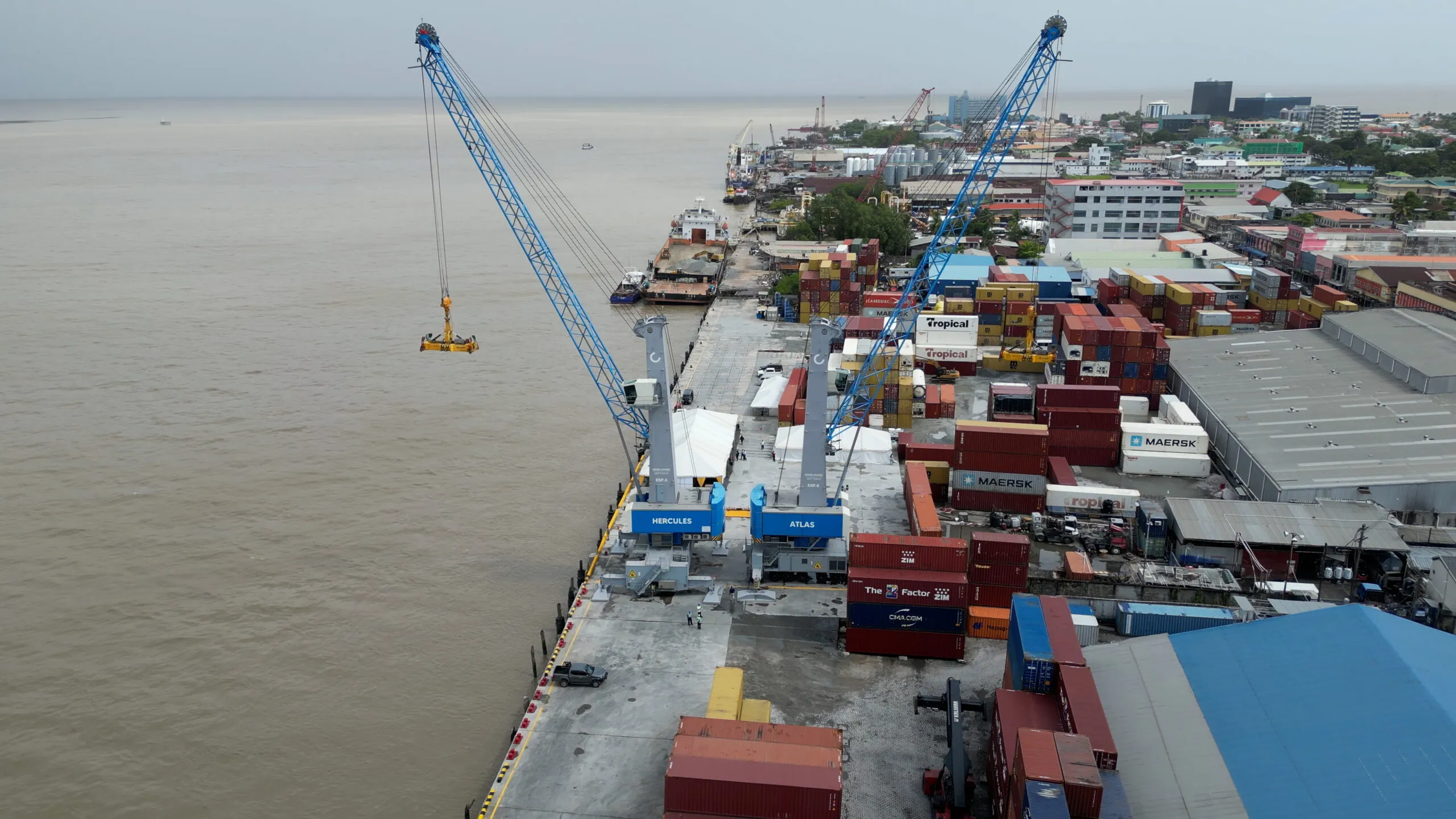Close

With marine traffic in Guyana having quadrupled over the past five years, the country is set to undergo transformative changes in its maritime sector. A comprehensive reform agenda is now underway, anchored by the introduction of a modern Port Act—legislation designed to improve the regulation, safety, and oversight of Guyana’s ports.
The new law will update and streamline the current framework, which is governed by several legacy acts, including the Shipping Act, Customs Act, and Transport and Harbours Act. The objective is to ensure that port operations evolve in step with Guyana’s increasing maritime activity and its ambition to become a regional logistics hub (Department of Public Information).
A key component of this modernisation effort is the planned establishment of an independent Port Authority. This body will operate with autonomy and professionalism, managing the regulatory and operational framework for the country’s ports. It is expected to align with international maritime standards, enhancing Guyana’s competitiveness in global trade and logistics (Shipping Association of Guyana).
To further address sector bottlenecks, the government is prioritising investment in physical infrastructure. One of the flagship projects includes the deepening of the Demerara Harbour—an essential step to accommodate larger vessels and reduce shipping delays. This effort is designed to lower shipping costs and attract increased international trade. Wreck removal operations are already in motion, with over $2 billion invested in clearing blocked shipping lanes in the last year alone (Department of Public Information).
The planned Port Act also underscores a commitment to digitisation and greater operational efficiency. Faster turnaround times, streamlined processes, and integration of digital tools are set to modernise logistics across Guyana’s coastal and inland port facilities.
This legislative initiative responds directly to rapid economic growth, particularly in the offshore, extractive, and agricultural sectors, all of which rely heavily on maritime infrastructure. With congestion growing and many vessels currently waiting offshore due to limited berthing capacity, the need for reform is urgent and necessary.
As marine activity continues to expand, the introduction of the modern Port Act and its accompanying infrastructure upgrades position Guyana as a future-ready nation. These reforms are not just about maritime policy—they are foundational to ensuring the country’s continued integration into global trade and securing long-term economic resilience (Department of Public Information, Shipping Association of Guyana).

The Guyana Project is an independent media platform delivering fact-checked, ground-level reporting on politics, economy, and public life in Guyana. With a focus on transparency and development, we bring unfiltered news and thoughtful analysis to help shape a more informed, forward-looking nation.

Guyana Advances Toward Maritime Modernisation with New Port Legislation

Lorem Ipsum is simply dummy text of the printing and typesetting industry. Lorem Ipsum has been the industry’s standard dummy text ever since the 1500s, when an unknown printer took a galley of type and scrambled it to make a type specimen book. It has survived not only five centuries, but also the leap into electronic typesetting, remaining essentially unchanged. It was popularised in the 1960s with the release of Letraset sheets containing Lorem Ipsum passages, and more recently with desktop publishing software like Aldus PageMaker including versions of Lorem Ipsum.
t is a long established fact that a reader will be distracted by the readable content of a page when looking at its layout. The point of using Lorem Ipsum is that it has a more-or-less normal distribution of letters, as opposed to using ‘Content here, content here’, making it look like readable English. Many desktop publishing packages and web page editors now use Lorem Ipsum as their default model text, and a search for ‘lorem ipsum’ will uncover many web sites still in their infancy. Various versions have evolved over the years, sometimes by accident, sometimes on purpose (injected humour and the like).
Contrary to popular belief, Lorem Ipsum is not simply random text. It has roots in a piece of classical Latin literature from 45 BC, making it over 2000 years old. Richard McClintock, a Latin professor at Hampden-Sydney College in Virginia, looked up one of the more obscure Latin words, consectetur, from a Lorem Ipsum passage, and going through the cites of the word in classical literature, discovered the undoubtable source. Lorem Ipsum comes from sections 1.10.32 and 1.10.33 of “de Finibus Bonorum et Malorum” (The Extremes of Good and Evil) by Cicero, written in 45 BC. This book is a treatise on the theory of ethics, very popular during the Renaissance. The first line of Lorem Ipsum, “Lorem ipsum dolor sit amet..”, comes from a line in section 1.10.32.